LiA Peace and Social Resilience - week 3
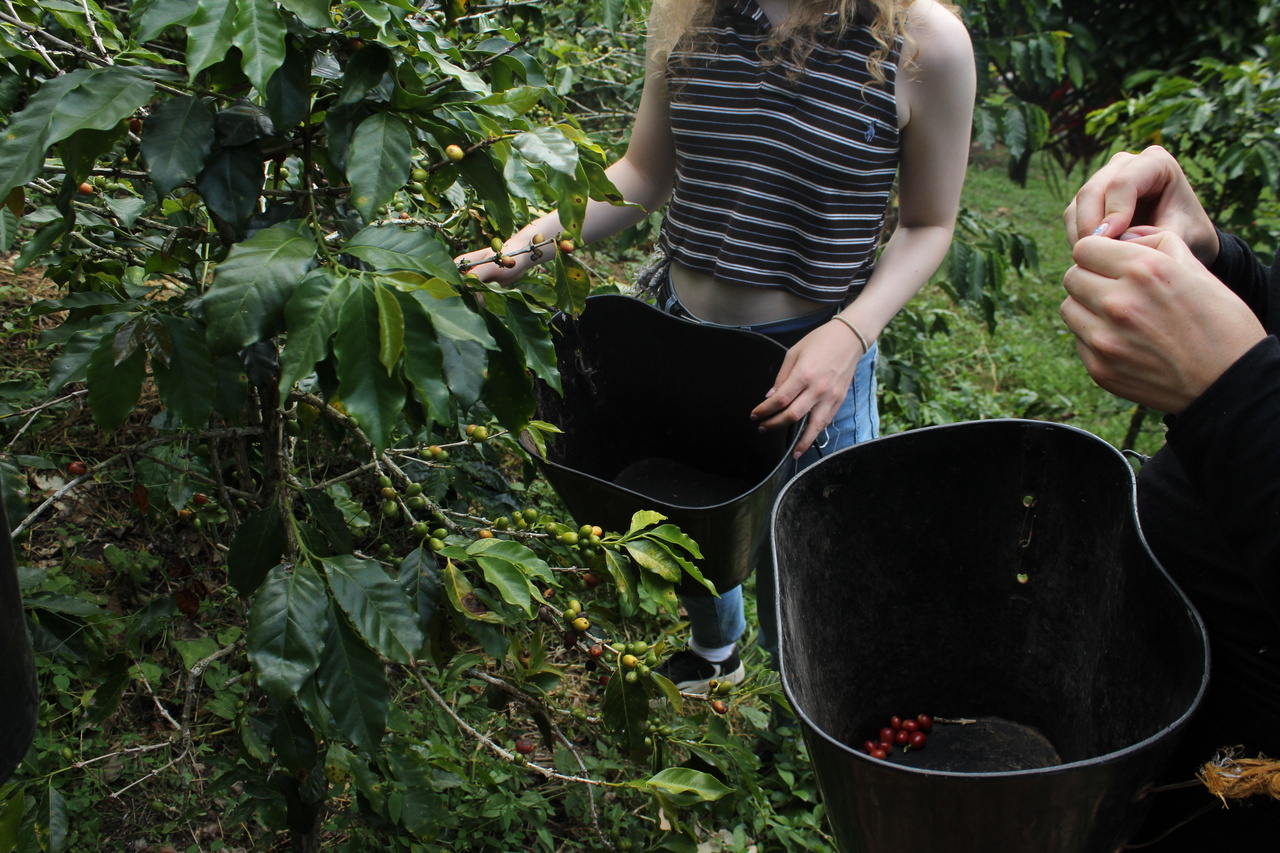
Three weeks into my LiA journey and each day still feels unique, sparking reflection and emotion, and provoking in me the same enthusiastic reaction a kid would have when playing their favourite game. I am, indeed, playing my favourite game: being exposed to inspiring stories, sharing bits of life, crossing paths with people in a constant hi-and-goodbye-see-you-again-maybe (at some point in life) way. In Colombia and its people I see mirrored some fragments of life that remind me of my home and culture, which I left behind to pursue my studies abroad at a young age. For this reason, maybe, the past week was particularly emotional for me, as reflected in the words I have chosen to describe it:
Memoria: It means memory; on Friday, to conclude the week, we visited the museum Casa de la Memoria, an exposition of Medellín’s past of violence and resistance through the stories and testimonies of those who were affected by it. Looking at this city through both historical and individual perspectives really allowed us to understand the strength of collective memory in promoting a peaceful future for a community.
Tierra: translates in ‘land’, ‘earth’, ‘ground’; here in Colombia, the concept of working the land and respecting the earth is particularly important for displaced communities that moved from the countryside to the city to escape violence, but still try to preserve their cultural heritage campesino (from ‘campo’: (crop) field, rural area).
Imprevisto: describes a sudden, unforeseen occurrence that alters the general course of things; in my case, food poisoning, which made my start of the week slightly less enjoyable.
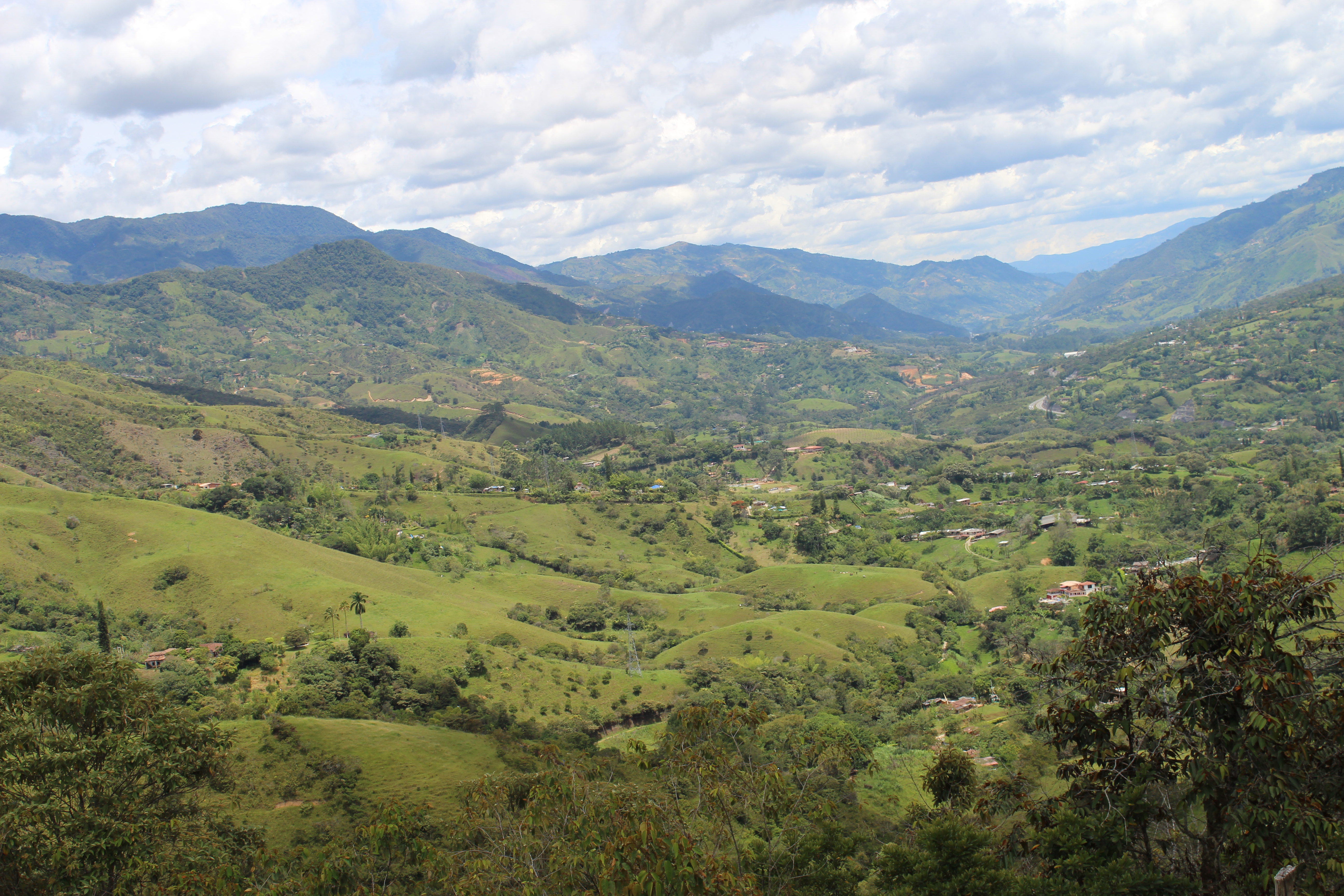
What went well?
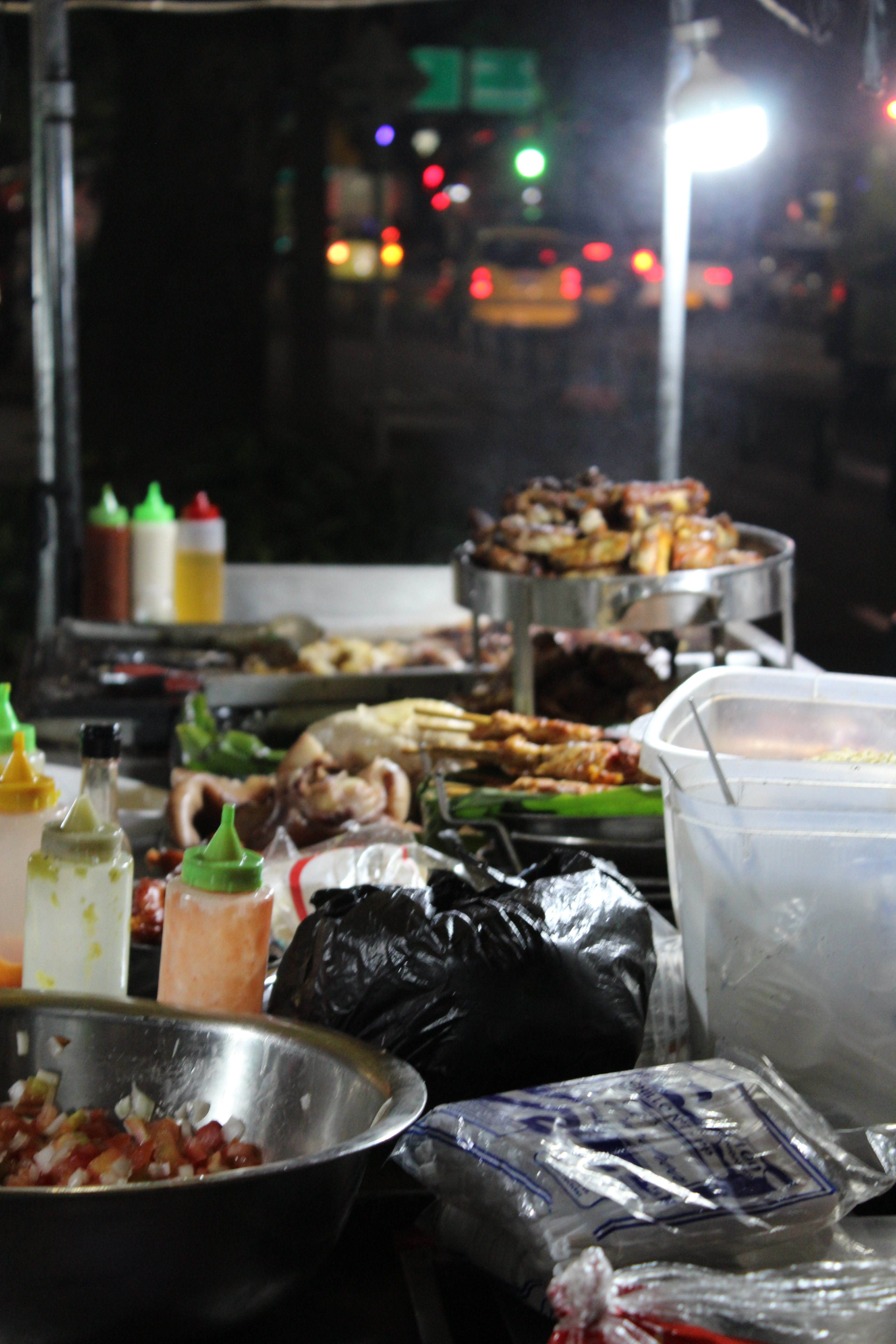
poisoning, but delicious (do I regret the fatal
empanada? Not fully.)
This week marked the start of our hands-on work with the partner organisations. Two fellow scholars (Je Ho, U of T, and Hannah, UCL) and I are collaborating with the organisation El Derecho a No Obedecer, which supports activism and civil resistance as means to increase citizens’ political participation and engagement. I am particularly proud of our team dynamics, which were tested straight away by the challenge of two teams members falling sick, thankfully not simultaneously. One of the members could not join us for the visit to El Faro, the neighbourhood of Medellín which we are supporting in their project of building an agroforestry and community garden, and I did not partake in the volunteers recruitment phase due to food poisoning. Regardless, everyone has been kept in the loop and engaged with the project, also thanks to the attitude of mutual support that was established naturally in our small group. The positive experience of collaboration and team working extended also to our work dynamics: the diversity in skills and widespread sense of responsibility that characterises our group constitutes an incredible strength. What I am bringing to the table is an imperfect yet somehow efficient knowledge of Spanish, and my main contribution consists in communicating with only-Spanish speakers stakeholders and facilitating our work with volunteers when issues related to the language barrier arise.
What could have been done differently?
The first step for the implementation of our project was to find institutional support within UPB, as the original idea was the creation of a university-affiliated student action group to support us in the project and ensure its sustainability after our departure. As we carried out several meetings with teaching staff and administration at the university, we started to understand the importance of identifying the right partners could best benefit our project and be truly interested in the cause we are promoting. After a meeting with a representative of the leadership at UPB, we had to acknowledge that the ‘university-affiliated’ route was not a viable option for what we had in mind and the political nature of our work. However, walking down the wrong path was not a mistake, but a lesson. Following this slight set-back, we decided to reach out to different departments within the university in a (successful) attempt to maintain an academic focus and provide more incentives for student volunteers to engage with our project.
What did I learn about myself when working with others?
I found myself thinking about the meaning of ‘integrity’ quite often during my LiA, finding myself in a context of constant exchange with people, cultures and work ethics that are often different from my own. For me, showing integrity is strongly connected to a feeling of identity and self-awareness - in other words, it means having sense of who you are and being true to oneself. In making choices on a day-to-day basis as much as when thinking about future life decisions (the past weeks have been characterised by the rise of several existential questions, as one would expect would happen when embarking on a journey of this magnitude and so far from home), I have felt strongly the need of practicing thinking with my own head and figure out what I really want. It only is when I acquire an understanding of what I need and want, and show integrity towards my ideas and values, that I can be ambitious instead of arrogant, or pretentious. In carrying out our LiA projects we find ourselves in a position of leadership at the service of our volunteers and partner organisations. Showing integrity by being humble about our capabilities and following a purpose that guides action, while being ambitious in proposing new ideas to stakeholders, are the values that we are asked to practice daily. In this picture, being ambitious does not mean being idealistic, rather aiming for the best possible result considering the resources available and predictable challenges ahead. In the development of our project, a lot of opportunities opened up along the way and we forged important connections that altered the scope of our project multiple times: what keeps us on track amongst all our ideas, difficulties, and possible pathways is a strong sense of what we want from this project, and why we believe it is important.
What did I learn about leadership?
The leadership lesson of this week it’s a lesson in resilience and determination to achieve, and who taught it to me was the community of El Faro, a neighbourhood located in Villa Hermosa in the central-east section of Medellín.
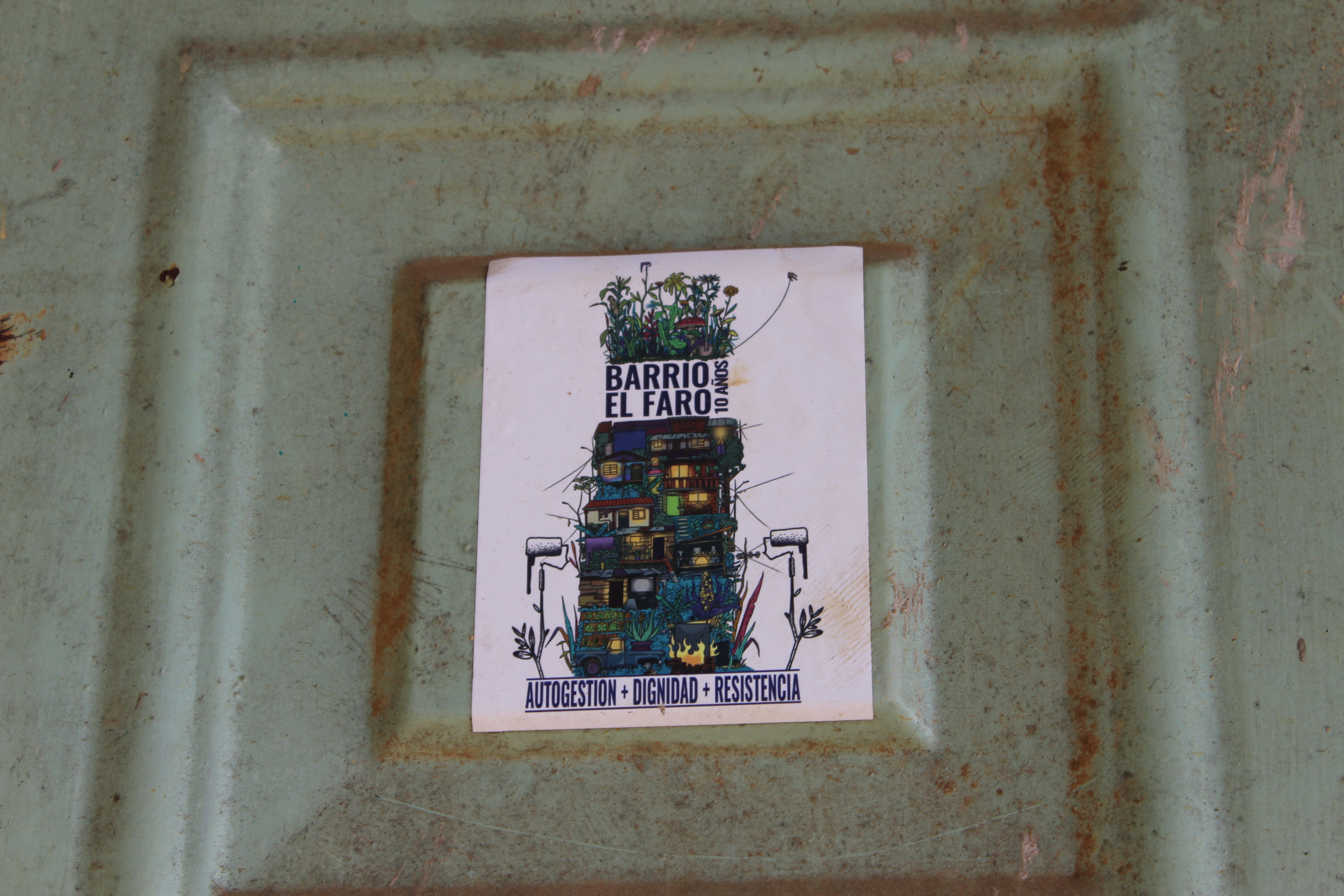
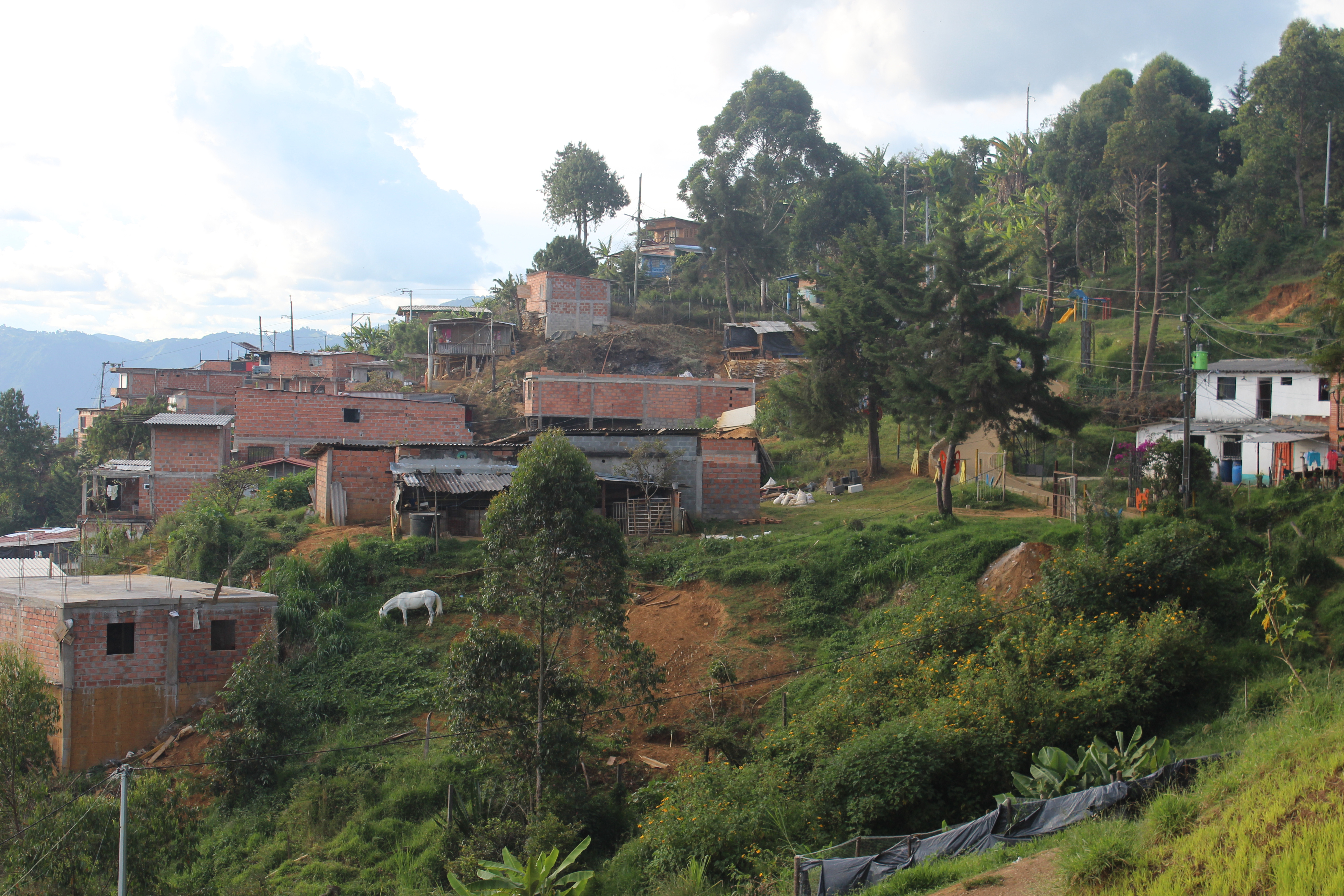
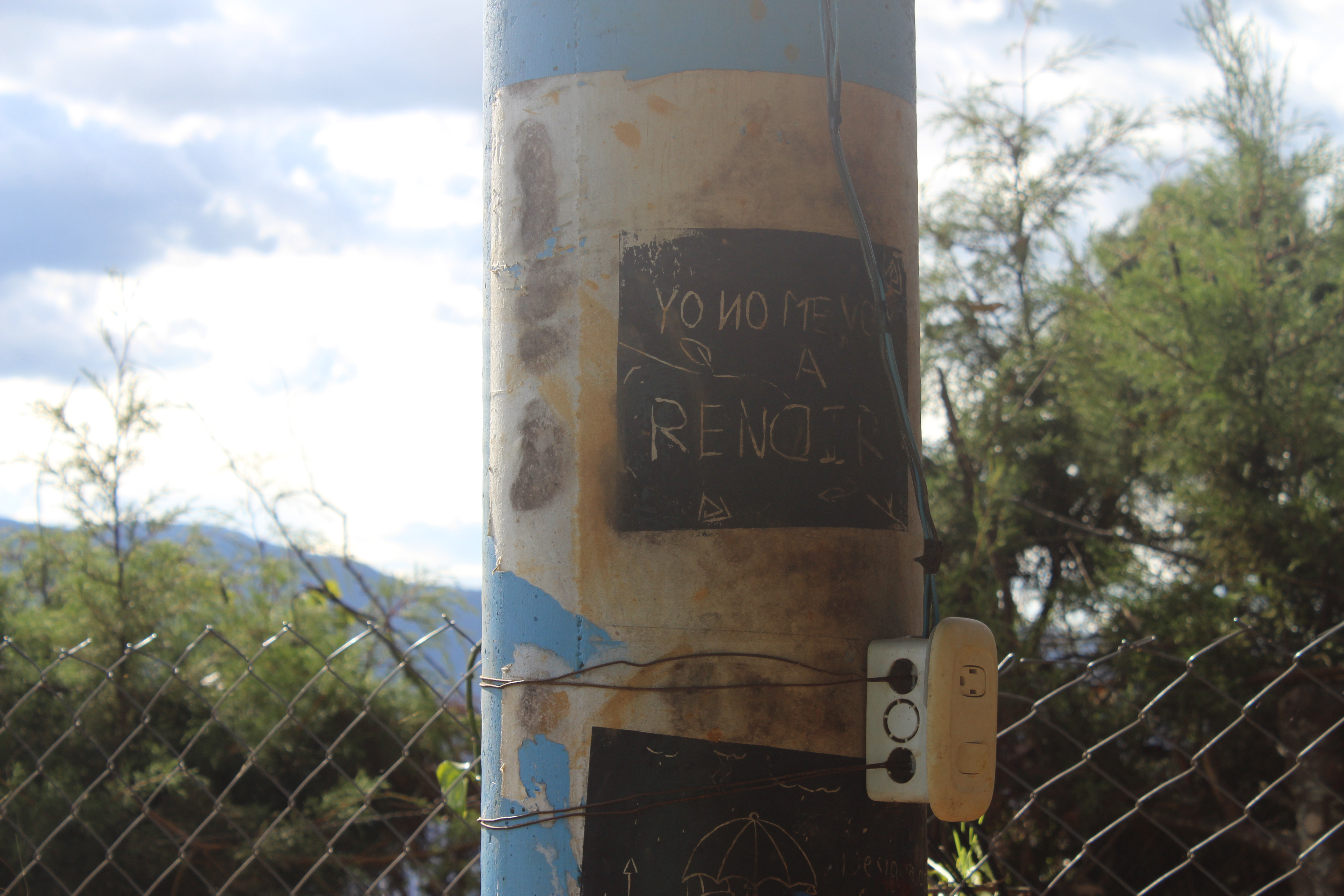
The photo on the left was taken in the huerta communitaria of El Faro, created as a communitarian space to promote food sovereignty of the barrio. The space is also known as the huerta escuela (’garden school’), where twice a month the kids of the neighbourhood gather to learn about sustainability, natural sciences, adaptation to and mitigation of climate change, and how to work the land. The column portrayed reads ‘Yo no me voy a rendir’ which means ‘I will not give up’, almost as a reminder of how the sense of belonging and mutual support embodied in communitarian spaces like this represents the resilience and determination of the people of El Faro. Why are communitarian spaces so important for this community? Well, El Faro, like most of the more recent neighbourhoods in the city, was born as an informal settlement built by refugees escaping the violence in the countryside during the years of internal conflict. As Gabriel, the leader of the Junta de Acción Comunal (JAC, ’community action board’), explained to us, the conflict moved faster than the urban planning and development of Medellín, and its population increased dramatically and progressively during the XX century. Individuals displaced from the rural areas migrated to a city that did not have a place for them and, as a consequence, started creating a space for themselves on the inhabited mountains that surround the city. While many of these settlements are now recognised by the authorities as part of the municipality, the more recently established ones like El Faro still struggle to acquire formal recognition and therefore are not included in institutional development plans and are excluded from the provision of public services (water, electricity and risk management are the most pressing issues). The importance of social and communitarian leadership in these realities lies in the need to be self-sufficient and self-organised at a local level to compensate for the lack of institutional support.
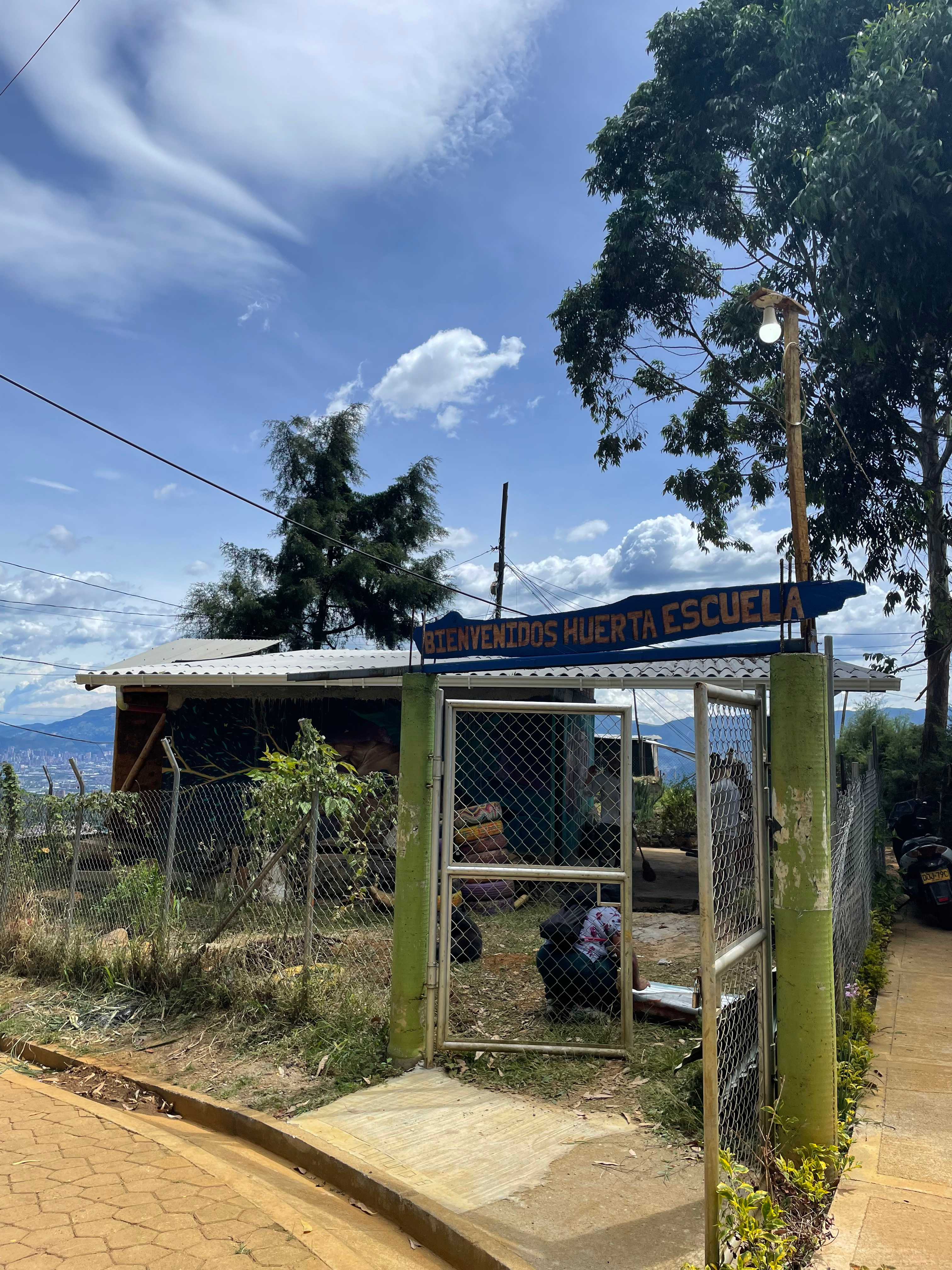
We had the chance to meet the community leaders of El Faro and other (young) people who contribute weekly to maintaining community spaces and creating a feeling of belonging and political participation in the barrio. Gabriel and many other members of the JAC have been engaged in local leadership for a long time, renovating their commitment mandate after mandate because of scarce participation by other members of the community rather than because they are driven by innate leadership skills.
Others became points of contact in the El Faro thanks to some sort of ‘butterfly effect’: M., for example, is a woman who decided to get involved with JAC inspired by her daughters who had been active for a while as teachers in the huerta escuela. It is through these encounters that I became even more convinced that no one is a ‘born leader’; leadership stems out of necessity, sense of responsibility, and commitment.
What do I want to develop or focus on next?
What I still need to develop
The next week will be a crucial time to practice research and project management skills: the clock is ticking, there is a lot to do, and we need to start working with our volunteers! The main challenges are related to the logistics of the day of activities that we are planning in El Faro, because it requires the coordination of a lot of stakeholders (El Faro community leaders, makesense, Laidlaw Scholars, DNO, volunteers) and most communications are carried out in Spanish only. The makesense team has been an incredible support so far, and I am sure that the student volunteers from UPB will be of great help in the development of the project too.
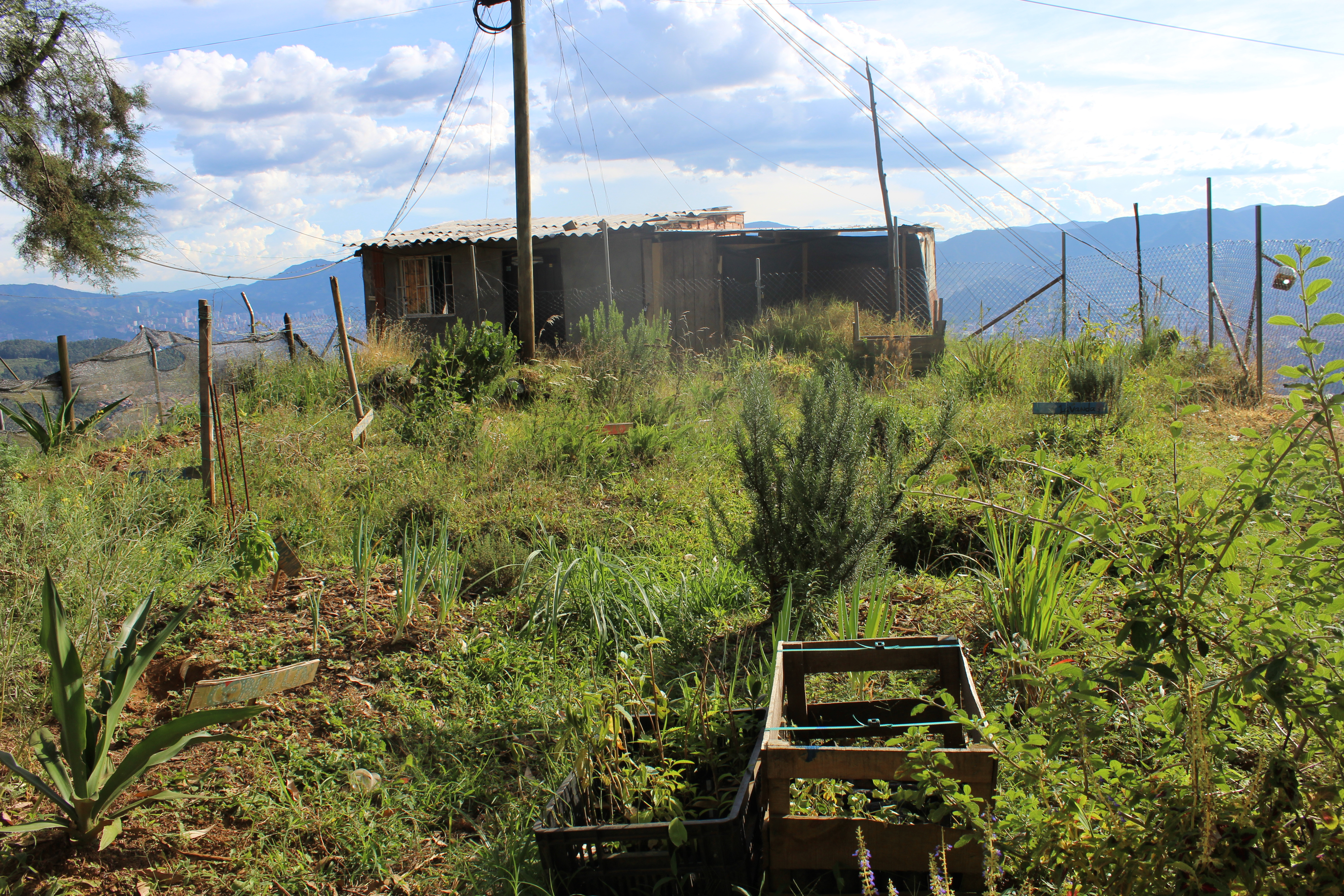
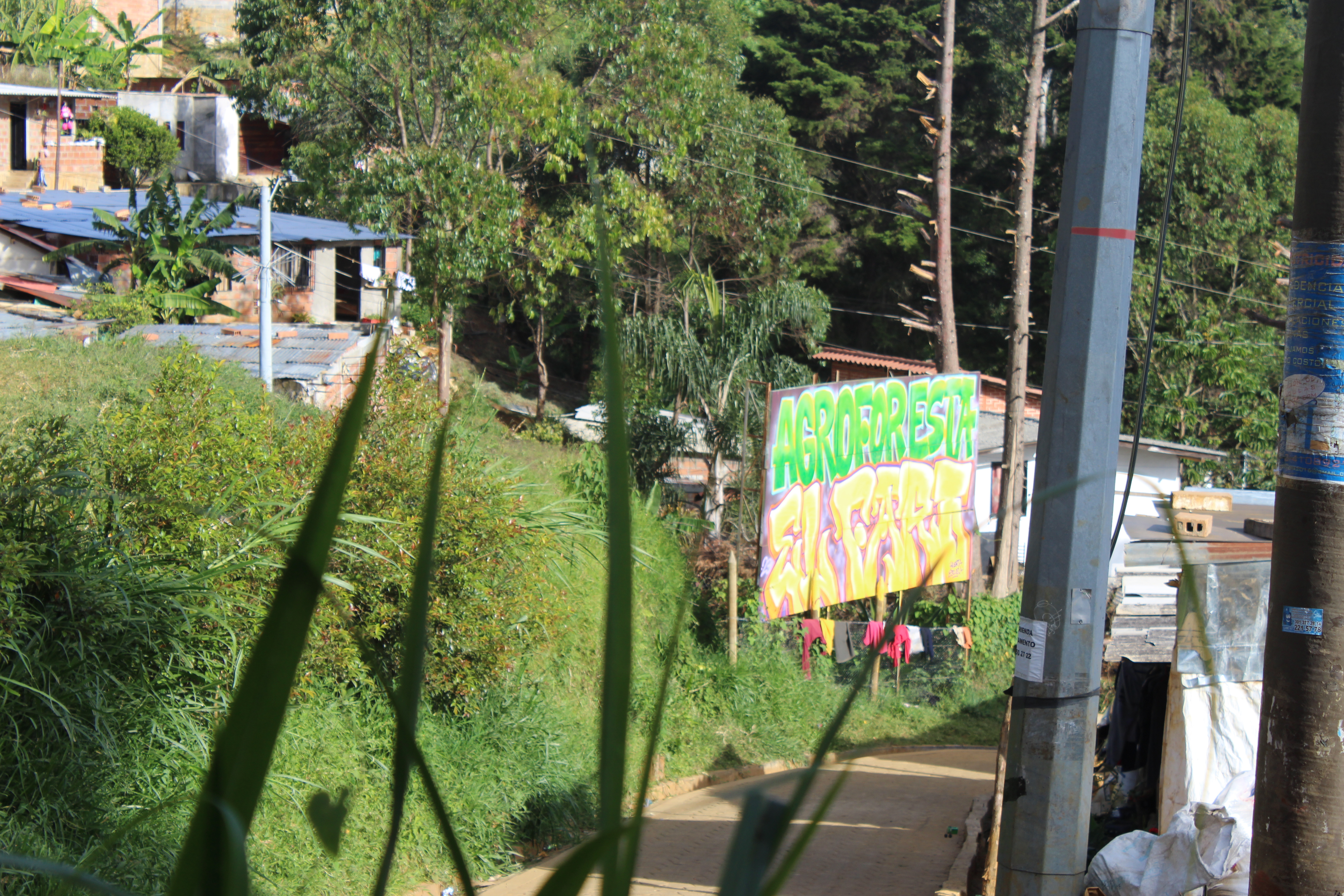
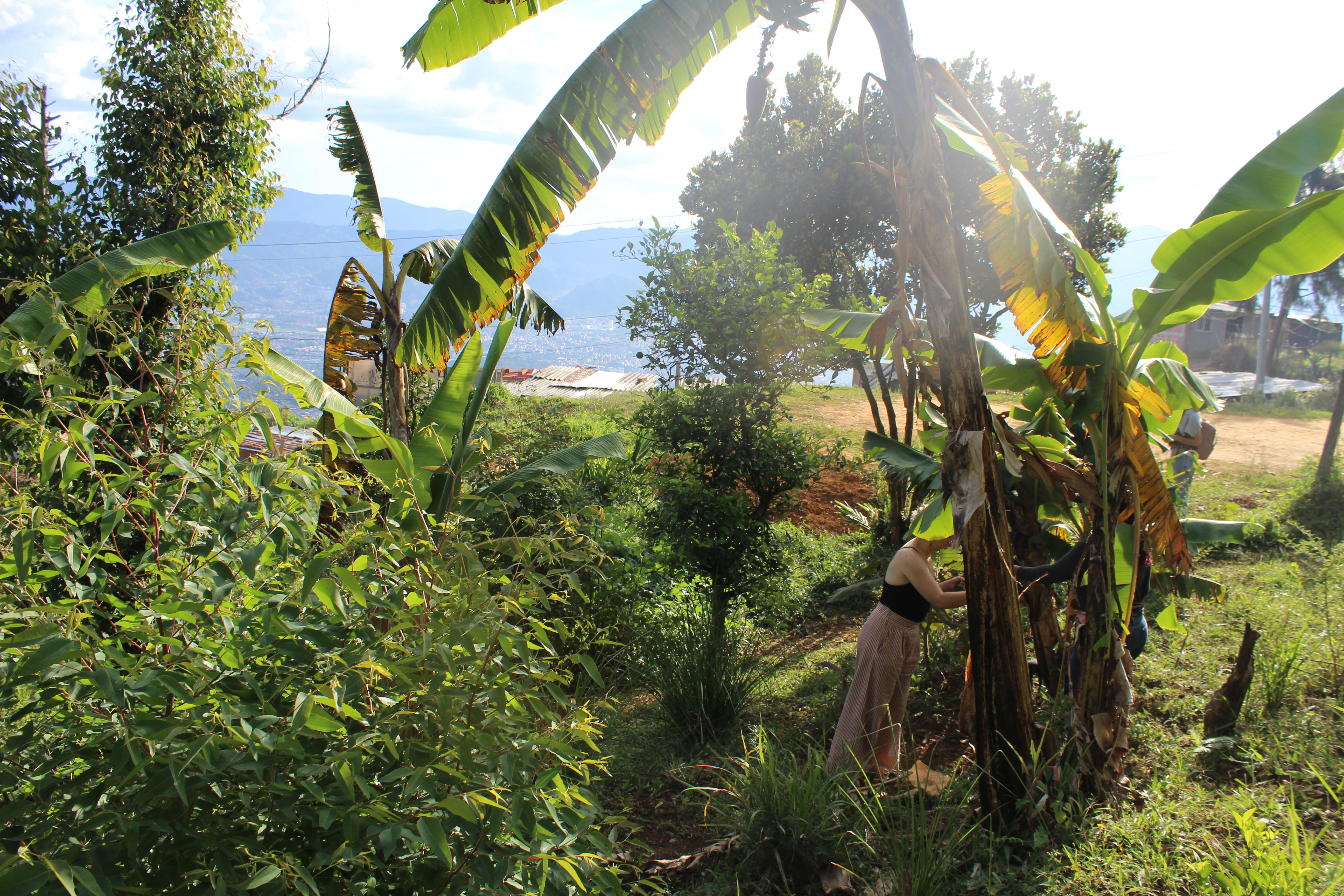





Please sign in
If you are a registered user on Laidlaw Scholars Network, please sign in